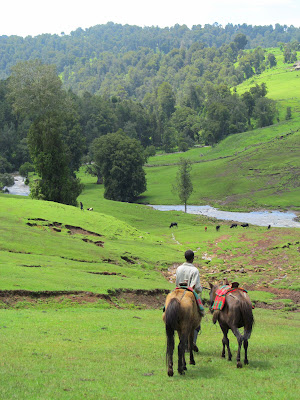24 October 2012
Until Haile Selassie was removed from power in 1974 Ethiopia had the longest running Imperial regime in Africa. Centuries of kings and queens created a culture of haves and have nots. The final regime was overthrown by a military communist party known as the Derg, led by Mengistu. The Derg wanted to even out the score between the social classes and emphasized land and education reforms. In doing so they also committed heinous violence acts to oppress culture and ideological liberty. I have met people whose family members were killed during the Derge, and political prisoners who continue to suffer from the torture of their imprisonment. One man I know was incarcerated for 12 years had each of his teeth pulled, one by one.
The current party, ERDPF, overthrew the Derge in 1991 and is the first ‘democratic’ government in Ethiopia, one of the oldest nations in the world with one of the youngest democracies! Aside from brief periods around election times no other political parties are active. During the last election the existing ERDPF Prime Minister declared his victory with “99% of the votes.” Seems too good to be true? I think so too. People’s jobs are kept or cut depending on their support of the current party. There is no neutrality either; being so is equivalent to opposition.
Ethiopians love current events. They watch the news daily, and enjoy intellectual conversations about foreign affairs, but they will not engage in a dialogue about their own country’s politics. International politics are interesting because things change, people protest, there are power transitions. Ethiopian policies affect all citizens deeply, the decisions made only by a handful of people. Often it seems, the change is slow and people are prepared for more struggle.
I know more Ethiopians than not who haven’t exercised their right to vote, who do not feel that their voice will persuade politicians. People who pretend they don’t care or are satisfied by those who represent them because saying otherwise is too risky. And yes, to remind you again, this is a “democratic nation.”
Our democracy in the U.S. is not perfect, but can continue to strive for improvements through the voice of its citizens. People can complain, protest and petition and the diversity of opinions helps us continuously shape and adjust things. Voting matters and change is constant. Life in the United States is revered as some of the most envious in the world, and I give much credit to our system of governance: Democracy without quotations.
As we approach presidential elections in November. Please remember that freedom of speech is a liberty millions of people in the world live without. Voting is a means to exercise this liberty and it should not be overlooked. Regardless of your position or your party please VOTE!








